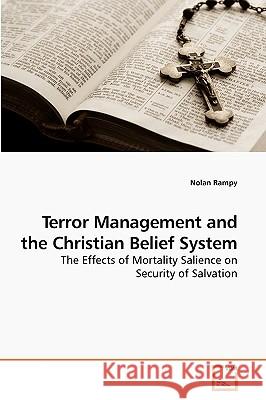Terror Management and the Christian Belief System » książka
Terror Management and the Christian Belief System
ISBN-13: 9783639249071 / Angielski / Miękka / 2010 / 60 str.
Terror management theory is built upon the notion that man's response to fear of death is to establish meaning and permanence in a subjective and ephemeral world. The perception of transcendent purpose is achieved via espousal of a worldview and the attainment of self-esteem. Throughout history, many religions have provided believers with a worldview, creating the perception of absolute truth and immortality by offering eternal reward and punishment based on adherence to the belief system. In this study I hypothesize that religion might behave differently as an existential buffer depending upon the persons' perceived moral standing in relation to their belief system. This study attempts to test this assumption by examining the variable of security about salvation in the face of mortality salience.
Terror management theory is built upon the notion that mans response to fear of death is to establish meaning and permanence in a subjective and ephemeral world. The perception of transcendent purpose is achieved via espousal of a worldview and the attainment of self-esteem. Throughout history, many religions have provided believers with a worldview, creating the perception of absolute truth and immortality by offering eternal reward and punishment based on adherence to the belief system. In this study I hypothesize that religion might behave differently as an existential buffer depending upon the persons perceived moral standing in relation to their belief system. This study attempts to test this assumption by examining the variable of security about salvation in the face of mortality salience.











